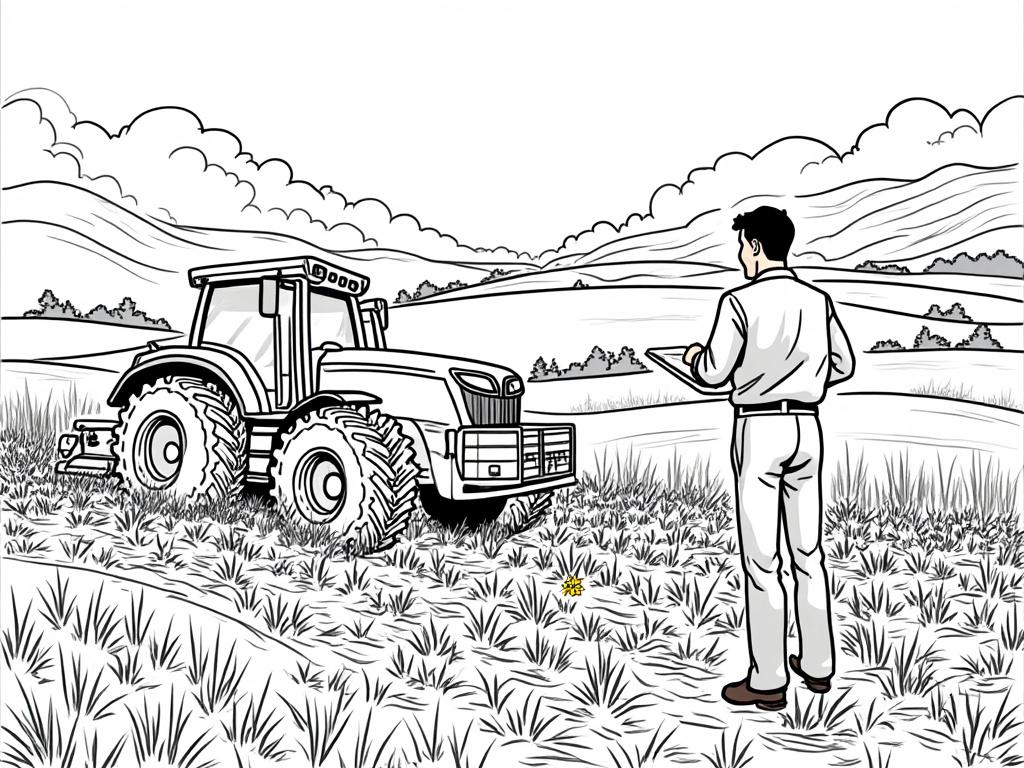
Organic Farming Practices in Greece: A Complete Guide to Sustainable Agriculture
Reading time: 12 minutes
Table of Contents
- Understanding Greece’s Organic Farming Landscape
- Essential Organic Farming Practices
- Regional Advantages and Challenges
- Economic Considerations and Market Opportunities
- Certification Process and Compliance
- Success Stories and Case Studies
- Your Sustainable Agriculture Journey
- Frequently Asked Questions
Understanding Greece’s Organic Farming Landscape
Ever wondered why Greece has become a Mediterranean powerhouse in organic agriculture? You’re looking at a country where ancient farming wisdom meets modern sustainable practices, creating opportunities that are reshaping the agricultural sector.
Greece currently ranks among the top 10 countries globally for organic farming area per capita, with over 537,000 hectares dedicated to certified organic production. That’s roughly 4.2% of the country’s total agricultural land – a figure that’s been steadily climbing since 2010.
Why Greece Excels in Organic Agriculture
The secret isn’t just the Mediterranean climate (though that helps enormously). Greece’s success stems from several strategic advantages:
- Diverse microclimates: From coastal plains to mountain valleys, offering varied growing conditions
- Traditional knowledge: Generations of low-input farming practices that align with organic principles
- EU support: Significant subsidies and grants for organic conversion and maintenance
- Premium market access: Growing demand for Greek organic products across Europe
Here’s the straight talk: Organic farming in Greece isn’t just about following trends—it’s about leveraging natural advantages while building sustainable businesses.
Current Market Dynamics
The Greek organic market has experienced remarkable growth, with domestic consumption reaching €180 million annually. More importantly, export values have tripled over the past decade, particularly for olive oil, honey, and dried fruits.
Greek Organic Production by Category (2023)
Essential Organic Farming Practices
Ready to dive into the practical aspects? Let’s explore the core techniques that successful Greek organic farmers employ daily.
Soil Management Strategies
Soil health forms the foundation of every successful organic operation. In Greece’s varied terrain, farmers have developed sophisticated approaches to maintain and enhance soil fertility naturally.
Composting and Organic Matter: Most successful operations maintain compost-to-cultivated-area ratios of 1:10, applying 3-5 tons of compost per hectare annually. The key insight? Quality matters more than quantity.
Cover Cropping: Leguminous cover crops like vetch and clover are particularly effective in Greek conditions, fixing 80-150 kg of nitrogen per hectare while preventing erosion during winter rains.
Natural Pest and Disease Management
Quick Scenario: Imagine you’re managing an olive grove in Crete. What’s your biggest pest challenge? Olive fruit fly – and here’s how organic farmers tackle it strategically:
- Beneficial insect habitats: Maintaining wildflower strips that support natural predators
- Kaolin clay applications: Creating a protective barrier that deters egg-laying
- Pheromone traps: Monitoring and mass trapping adult flies
- Timing precision: Harvesting earlier when economically viable
Water Conservation Techniques
Water management isn’t just about efficiency—it’s about resilience in an increasingly dry climate. Greek organic farmers are pioneering techniques that reduce water usage by 30-40% while maintaining yields.
| Technique | Water Savings | Initial Investment | Payback Period |
|---|---|---|---|
| Drip Irrigation | 25-35% | €2,500-4,000/ha | 3-4 years |
| Mulching | 15-25% | €300-600/ha | 1-2 years |
| Rainwater Harvesting | 40-60% | €1,500-3,000/ha | 2-3 years |
| Soil Moisture Sensors | 20-30% | €800-1,200/ha | 2 years |
Regional Advantages and Challenges
Not all Greek regions are created equal when it comes to organic farming opportunities. Let’s break down the strategic landscape.
Crete: The Organic Powerhouse
Crete leads Greece in organic production, with over 65,000 hectares under certification. The island’s success story centers on integrated farming systems that maximize biodiversity while ensuring economic viability.
Case Study: The Kolymbari cooperative in western Crete transformed from conventional olive production to organic certification in 2015. Today, they command premium prices 40-60% above conventional olive oil, while their member farmers report improved soil health and reduced input costs.
Peloponnese: Ancient Wisdom, Modern Markets
The Peloponnese region excels in organic wine production and ancient grain varieties. Kalamata olives grown organically here fetch premium prices in international markets, with some producers achieving €8-12 per kilogram wholesale.
Northern Greece: Challenging but Rewarding
Macedonia and Thrace present unique opportunities for organic cereal production, though the transition period can be more challenging due to intensive conventional farming history. However, EU conversion subsidies are particularly generous in these regions, often covering 70-80% of income loss during transition.
Economic Considerations and Market Opportunities
Here’s where theory meets reality: Can organic farming in Greece actually pay the bills? The answer depends largely on your approach to market positioning and operational efficiency.
Revenue Streams and Pricing Dynamics
Premium pricing remains the primary economic driver for Greek organic farmers. Current market data shows organic products commanding 25-80% price premiums over conventional alternatives, with the highest premiums in export markets.
Pro Tip: The most successful operations don’t just grow organic—they build brands around their organic story, location, and traditional practices.
Cost Structure Analysis
Organic farming typically involves 15-25% higher production costs initially, primarily due to:
- Higher labor requirements (25-40% increase)
- Organic inputs and certification fees
- Potential yield gaps during transition (10-20% lower yields)
- Enhanced monitoring and record-keeping
However, mature organic operations often achieve cost parity or better through reduced input costs and premium pricing.
Financing and Support Programs
Greece offers some of Europe’s most generous support for organic agriculture through the Rural Development Program:
- Conversion payments: €350-900 per hectare annually for 3-5 years
- Maintenance payments: €200-600 per hectare annually
- Investment grants: Up to 50% of eligible costs for infrastructure
- Young farmer bonuses: Additional 20% support for farmers under 40
Certification Process and Compliance
Navigating organic certification doesn’t have to be overwhelming. Let’s break down the essential steps for entrepreneurs looking to establish compliant operations.
Understanding the Regulatory Framework
Greece follows EU Organic Regulation 2018/848, which sets strict standards for organic production, processing, and labeling. The good news? The framework is comprehensive and clear once you understand the key requirements.
Quick Scenario: You’re converting a conventional vineyard to organic production. What regulatory hurdles might you encounter? Let’s turn potential challenges into strategic opportunities:
- Transition Period: 3 years for perennial crops, during which you follow organic practices but cannot sell as organic
- Buffer Zones: Maintaining separation from conventional production areas
- Record Keeping: Detailed documentation of all inputs, practices, and sales
- Annual Inspections: Comprehensive audits by accredited certification bodies
Practical Compliance Strategies
Successful certification isn’t about perfection—it’s about systematic preparation and continuous improvement. Many farmers find that digital record-keeping systems reduce compliance burden by 60-70% while improving operational insights.
Success Stories and Case Studies
The Mani Peninsula Honey Cooperative
In 2018, twelve beekeepers in the Mani Peninsula formed a cooperative to pursue organic certification for their honey production. Today, they export premium organic thyme honey to Germany and the Netherlands at prices 120% above conventional honey.
Their success factors included:
- Collective certification to reduce individual costs
- Shared marketing and branding efforts
- Direct relationships with specialty importers
- Consistent quality through standardized practices
Organic Wine Renaissance in Santorini
Santorini’s unique volcanic soils and dry climate create ideal conditions for organic viticulture. Estate Argyros converted their entire 30-hectare vineyard to organic production in 2016, reporting 35% higher profitability by 2022 through premium positioning and reduced input costs.
The transformation involved strategic challenges like managing sulfur applications in humid conditions and developing natural approaches to powdery mildew control. Their solution? Precision timing based on weather monitoring and beneficial microorganism applications.
For those considering establishing their own agricultural ventures, the opportunity to buy home in greece with suitable land for organic farming has never been more attractive, especially with current property market conditions and agricultural support programs.
Your Sustainable Agriculture Journey
Ready to transform agricultural complexity into competitive advantage? The Greek organic farming sector stands at an inflection point where traditional knowledge, modern technology, and market demand converge to create unprecedented opportunities.
Your Strategic Roadmap Forward:
- Assess Regional Fit: Match your crop interests with Greece’s microclimatic advantages and existing supply chains
- Secure Funding Early: Apply for EU Rural Development grants before beginning conversion—funding decisions often take 6-12 months
- Build Market Connections: Establish relationships with organic buyers and cooperatives during your transition period
- Invest in Knowledge: Connect with local organic farming networks and attend regional training programs
- Plan for Certification: Begin documentation systems at least 6 months before your first inspection
The most successful organic farmers in Greece aren’t just following sustainable practices—they’re building resilient businesses that thrive in an era of climate change and evolving consumer preferences. They understand that organic farming is simultaneously a return to traditional wisdom and an embrace of innovation.
As global demand for authentic, sustainably-produced food continues growing, Greece’s organic farmers are positioning themselves at the forefront of a transformation that extends far beyond agriculture into rural development, environmental stewardship, and cultural preservation.
What’s your vision for contributing to Greece’s organic agriculture renaissance? The soil is ready, the markets are waiting, and the support systems are in place—your sustainable farming journey begins with the next step you choose to take.
Frequently Asked Questions
How long does organic certification take in Greece?
The certification process typically takes 3-6 months once you submit your application to an accredited certification body. However, you must complete a transition period (3 years for perennial crops, 2 years for annual crops) before you can market products as organic. During transition, you follow organic practices but receive conventional pricing until certification is complete.
What are the most profitable organic crops for small-scale farmers in Greece?
High-value specialty crops offer the best returns for small operations. Organic herbs (oregano, sage, thyme) can generate €3,000-8,000 per hectare, while organic olive oil from heritage varieties commands premium prices. Organic honey, particularly from wildflower and thyme sources, provides excellent returns with relatively low land requirements. The key is focusing on products with strong export potential and distinctive Greek characteristics.
Can I convert part of my farm to organic while keeping the rest conventional?
Yes, but you must maintain clear separation between organic and conventional areas to prevent contamination. This includes separate storage, equipment cleaning protocols, and buffer zones. Many farmers start with partial conversion to test markets and build experience before transitioning their entire operation. Detailed record-keeping becomes crucial to maintain certification compliance across mixed operations.

Article reviewed by Adrian Sokolov, Post-Soviet Industrial Assets | Revitalizing Manufacturing Zones, on June 6, 2025





